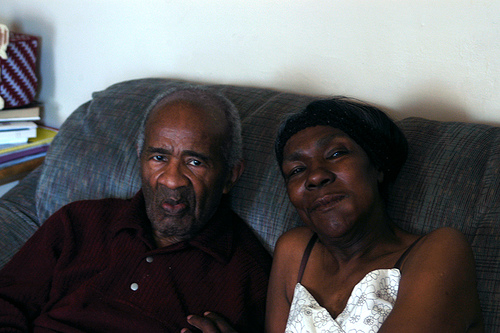Cohabitation and Common Law Marriage

What Happens when a Common Law Marriage Ends?
Currently in the United States, nine states plus the District of Columbia recognize common law marriages. However, when a common law marriage ends in separation, many people wonder if they have to surrender their marital rights since theirs was a marriage that wasn't officially sanctioned.
The short answer is no. As a common law marriage partner, you may have rights to your spouse's retirement benefits, property you purchased together, and health insurance.
This article will help you figure out if you have rights, and what steps you can take to protect them if your common law marriage is at its end.
Regardless of where you live...
Have you ever presented yourself as married when you weren't?
Requirements for Common Law Marriage
When a couple meets the requirements shown in the table below, the home state where they met the requirements may consider them legally married "by common law."
If they relocate to another state after meeting the requirements of one of these states, the new state will honor their status as married.
Important terms to know as you read the table:
Capacity requirements - The parties must be able to enter a legally binding contract. In other words, they must legally be adults (or minors with parental permission that meets the state's requirement for marriage consent) and not have a mental disturbance or other condition that makes them incapable of giving consent to the act of marriage. Finally, capacity also refers to the ability to understand what marriage is as it is applied to common law marriages.
Agreement - Agreement indicates that neither party objected to being seen as married to their partner.
Consummation - The parties have completed acts of physical intimacy as expected in a marriage, typically defined by intercourse.
Holding forth - I've called this "Present to the Public as Married" in the table below for clarity. Holding forth is achieved by acting like a married couple in a way that gives the couple a reputation as married: Name changes, jointly filed taxes, joint purchases of property, and introducing one another as "my husband" or "my wife" are a few ways a couple can hold forth.
Couples that hold forth as married gain a reputation as being a married couple. They may be listed on insurance as beneficiaries, enact financial transactions for each other, and people in their communities may not realize they didn't take part in a sanctioned marriage ceremony.
Meet Capacity Requirements?
| Agreement Required?
| Cohabitation?
| Other Requirements?
| |
|---|---|---|---|---|
Alabama
| Yes
| Yes
| No
| Consummation of marriage
|
Colorado
| No
| No
| Yes
| N/A
|
District of Columbia (Washington, D.C.)
| No
| No
| Yes
| N/A
|
Iowa
| No
| Yes
| Yes
| Public Declarations as Husband and Wife
|
Kansas
| Yes
| Yes
| No
| Present to the Public as Married
|
Montana
| Yes
| Yes
| Yes
| Present to the Public as Married
|
Oklahoma
| Yes
| Yes
| Yes
| N/A
|
Rhode Island
| No
| No
| No
| "Serious Intent" and Present to the Public as Married
|
South Carolina
| No
| No
| No
| Intent for Others to Believe They are Married
|
Texas
| No
| Yes
| Yes
| Signed form, Present to Public as Married
|
Utah
| Yes
| No
| Yes
| Present to the Public as Married
|
New Hampshire has limited recognition of common law marriage for the purpose of inheritance.
Some states that formerly recognized common law marriages no longer do. For those states, people who established their marriages before these dates are considered legally married.
People who meet the requirements for common law marriage will be recognized by other states as legally married due to the Full Faith and Credit clause of the United States Constitution.
Marriage took place in:
| Before:
| |
|---|---|---|
Georgia
| January 1, 1997
| |
Idaho
| January 1, 1996
| |
Ohio
| October 10, 1991
| |
Pennsylvania
| January 1, 2005
|
Ending a Common Law Marriage: Is There a Common Law Divorce?
If you have been in a common law marriage that's dissolving, it may be tempting to think, "I can just walk away without a divorce." However, this is both inaccurate and risky!
Common law marriage isn't the same as cohabitation. Even if you never had children together or purchased jointly-owned property, in many states spouses are legally responsible for their partner's debts and obligations. Some states require advertising in a local publication in order to not be held responsible for debts incurred after a separation.
There is no such thing as "common law divorce." However, because common law marriage is a legal marriage in the eyes of the state where it is permitted, a divorce is necessary to sever the relationship's financial obligations, separate property, and to establish child support and custody agreements that are legally binding.
Although hiring a divorce lawyer may be expensive, remember that by its definition, common law marriage is a circumstance that results in people and companies believing you're married and treating you with the same consideration as if you'd been wed in a church or courthouse.








